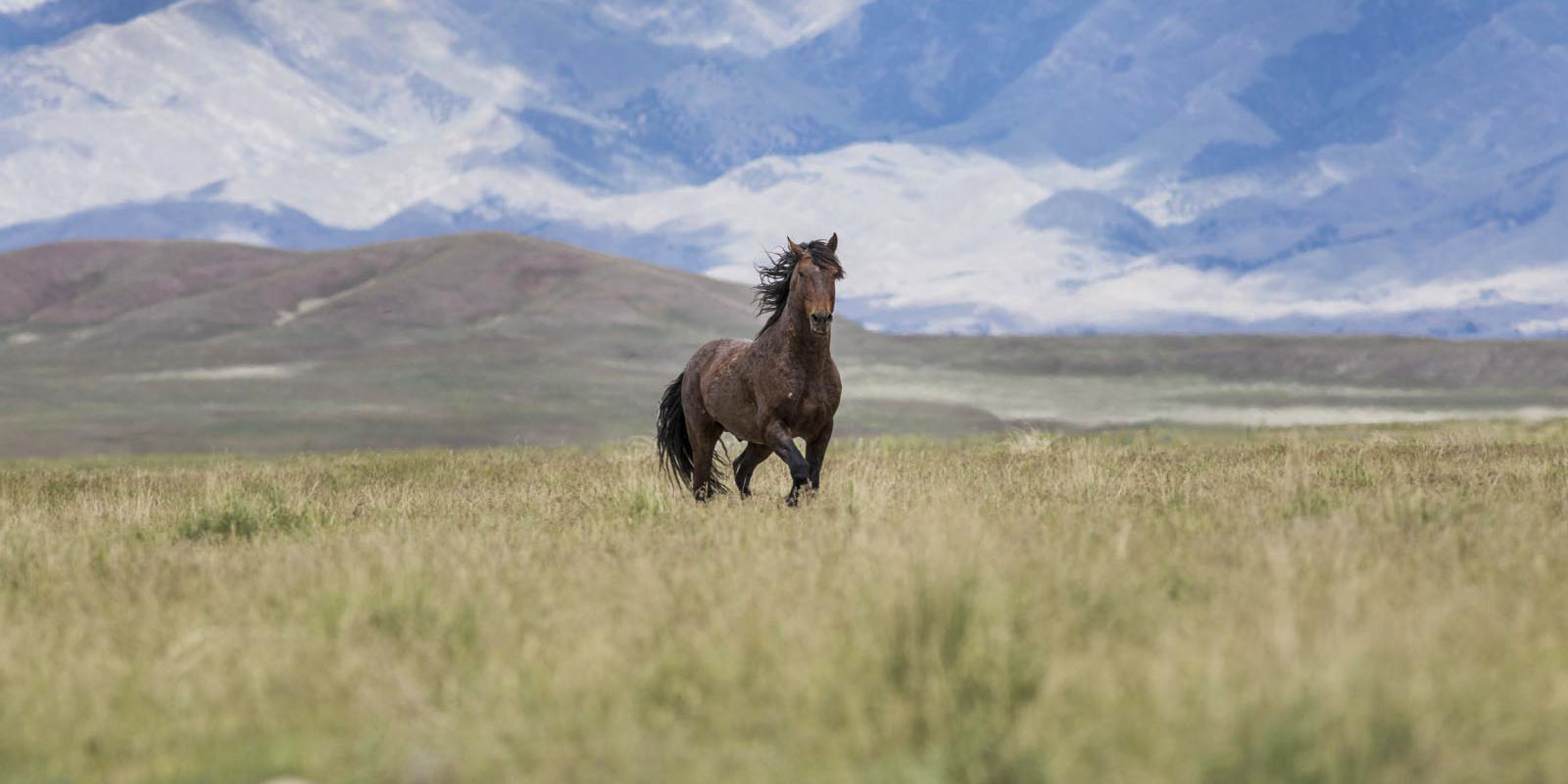October 9, 2018
Up to 1,000 wild horses will be rounded up from federal land in Northern California throughout October. They'll be put up for sale and adoption, but federal officials acknowledge that some of them may end up in slaughterhouses.
The horses live in Devil's Garden Plateau inside Modoc National Forest, which is near the Oregon border. It's the largest herd in California and is managed by the U.S. Forest Service. The roundup is set to begin Oct. 9 and will continue throughout the month.
These older horses will be made available for adoption for $125 each for 30 days. After that time, the price drops to $1 apiece and buyers can purchase as many as three dozen horses at a time.
"This allows trainers who are willing to train large quantities of horses a business opportunity. Several trainers have already stepped up committing to some of these horses. Horses can also be sold to sanctuaries, become ranch stock horses, packing horses, or to buyers that may send them to slaughter," according to a release from the volunteer-run Devil's Garden Horses page.
Exploiting a loophole
The "horse gather," as it is being called by the U.S. Forest Service, has animal advocacy groups worried. The American Wild Horse Campaign (AWHC) says the government is "exploiting a legal loophole" that will likely result in the slaughter of hundreds of horses.
The BLM, the federal agency that manages most of the country's wild horse and burro herds, is prohibited from selling them for slaughter. But the Forest Service, which oversees only a small number of protected horses, isn't bound by the same rule. Earlier administrations have followed BLM policy; the current administration does not.
That's why the AWHC is so incensed.
"It’s a sad irony that the first federally protected wild horses in decades to be purposefully sold by the government for slaughter will come from California — a state where the cruel practice of horse slaughter has been banned since the 1990s," said Suzanne Roy, executive director of AWHC.
"While we understand the Forest Service's desire to reduce the Devil's Garden wild horse population, the agency must do so in a humane and socially acceptable manner. The current plan will set a horrific precedent that violates the intent of Congress, the spirit of the Wild Free Roaming Horses and Burros Act, and the overwhelming will of Californians and other Americans."
Not enough room for them all
Federal officials say the land cannot sustain the sheer size of the herd.
"Our territory is supposed to have 206 to 402 animals, we have almost 4,000 horses," Modoc National Forest Supervisor Amanda McAdams said in a statement to the Sacramento Bee.
Those horses roam on more than 250,000 acres within the national forest.
"It sounds like a lot of acres for 4,000 horses, but there's not a lot of vegetation and not a lot of water," McAdams said.
Federal officials say they are working with partners to adopt out as many horses as they can. But Forest Service spokesman Ken Sandusky told the Sacramento Bee that the government "cannot be reasonably expected" to adopt them all out.
"The other option is long-term holding, which makes unlimited sale the only fiscally responsible option," Sandusky said.
The AWHC is urging the Forest Service to slow things down and reduce the herd in small, incremental steps to assure humane placement of the horses.
But the government's stance is that such small removals won't make enough of an impact.
"With a population growth rate of 20-25 percent, 800-1,000 wild horses will be born on the Devil's Garden this year making these small removals negligible," said Laura Snell, Modoc County farm advisor.
For more information and the roundup and adoptions, read this Forest Service page about the Devil's Garden horses.


